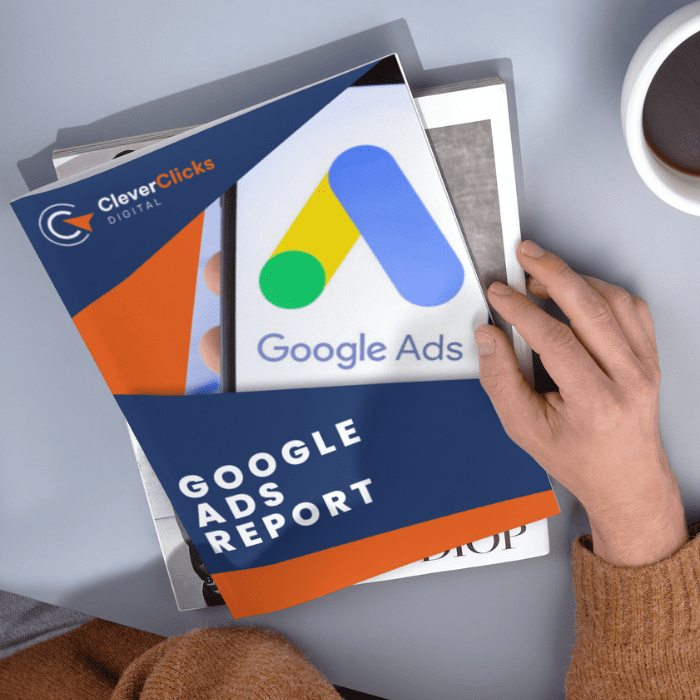5 Common Mistakes with Google Ads




Unlocking the vast potential of Google Ads can be a game-changer for businesses aiming to skyrocket their online presence and reel in potential customers from across the globe. With its unparalleled reach and precise targeting capabilities, Google Ads serves as a gateway to connect with audiences worldwide.
Many smaller companies want to utilise the platform, but can’t justify investing in a digital agency. However, this DIY approach often leads to a trail of common mistakes that can sabotage the effectiveness of their campaigns. For the PPC novice daring to venture into the realm of self-run campaigns, it’s crucial to tread cautiously.
As a digital agency deeply entrenched in the world of PPC, we’ve seen it all – the good, the bad, and the downright disastrous. From the enthusiastic startup founder to the seasoned entrepreneur, anyone can fall prey to these common Google Ads mistakes.
Crafting an effective Google Ads campaign begins with a meticulous selection of keywords that serve as the bedrock of your strategy. However, all too often, businesses stumble at this initial hurdle by either selecting overly competitive terms or straying too far from relevance to their content and target audience.
When keywords lack specificity or relevance, ads risk being showcased to a broad, unfocused audience. While this may seem beneficial on the surface, it often results in missed opportunities to connect with individuals genuinely interested in your offerings or within your desired demographic. To avoid this pitfall, thorough keyword research is paramount. Leveraging tools like SEMrush, Moz and Keyword Planner can provide invaluable insights into search volume, competition, and keyword variations, empowering you to pinpoint terms that strike the perfect balance between relevance and reach.
Companies should prioritise specificity over broad strokes when running campaigns with a limited budget. Targeting niche terms may yield fewer impressions, but they often translate into higher-quality traffic and increased conversions. Moreover, aiming for keywords with lower competition levels can help amplify your visibility within your target market while minimising budgetary strain.
Remember, the essence of successful keyword selection lies not merely in casting a wide net but in casting it strategically, ensuring every click counts towards propelling your business towards its goals.
In today’s digital landscape, overlooking the potential of ad extensions is like taking a bus with 3 wheels – ok, you’ll get where you’re going, but it’s not going to be as quick or smooth as it would on a bus with all its working parts.
As technology continues to advance, leveraging all potential ad enhancements is not just advantageous—it’s essential for maximising the impact of your Google Ads campaigns. Ad extensions serve as invaluable enhancements, enriching your ads with supplementary information that can significantly elevate their visibility and effectiveness.
By incorporating elements like links, phone numbers, location information, and additional text snippets, you not only make your ads more informative but also boost their relevance and engagement potential. The ripple effects are profound: higher ad ranks, improved click-through rates, and enhanced visibility on Search Engine Results Pages (SERPs).
We recommend embracing the full spectrum of available ad extensions and tailoring them to spotlight your unique selling propositions. This way you not only provide valuable information to prospects but also carve out a distinct identity amidst your paid competitors. From sitelinks to callouts, structured snippets to location extensions, each extension represents a golden opportunity to amplify your message, captivate your audience, and propel your business towards success.
When managing a Google Ads campaign, the strategic use of negative keywords can mean the difference between hitting the bullseye and shooting in the dark. These unsung heroes of PPC are the terms or phrases for which you don’t want your ads to be displayed. Their importance cannot be overstated, as they grant you ultimate control over where your ads appear, shielding them from irrelevant searches and uninterested audiences.
By diligently specifying negative keywords, you not only refine the targeting of your ads but also ensure they resonate with the most relevant audience segments. Ignoring this crucial aspect of campaign optimisation is a common misstep that can undermine the effectiveness of your Google Ads endeavours.
Regularly reviewing and updating your negative keywords based on enhanced data is essential for maximising the return from your campaigns. It’s a proactive measure that shields your campaign from the perils of low click-through rates and diminished returns on investment. By keeping your ads away from irrelevant audiences, you not only conserve precious ad spend but also enhance the overall efficiency of your campaigns.
It is easy to miss out key information in your ad copywriting, but it can lower the effectiveness of your campaign. Crafting compelling ad copy isn’t just about stringing together words; it’s about creating a narrative that captivates your audience, entices action, and drives results. Yet, all too often businesses succumb to common pitfalls such as vague messaging, poor calls-to-action, and a failure to spotlight their Unique Selling Points (USPs).
The essence of effective ad copywriting lies in its ability to resonate with your audience. Generic messaging fails to make an impression amidst the sea of competing voices. Instead, prioritise clarity, relevance, and authenticity in your copy. Clearly articulate the value proposition of your product or service, highlighting what sets it apart from the competition. Embrace persuasive language that speaks directly to the pain points and aspirations of your target audience, compelling them to take action.
Whether it’s making a purchase, signing up for a newsletter, or scheduling a consultation, your CTA should leave no room for ambiguity. Use actionable language that prompts immediate engagement, instilling a sense of urgency and importance in the minds of your audience.
Furthermore, don’t underestimate the power of relevance in your ad copy. Tailoring your messaging to align with the search intent of your audience not only enhances the user experience but also boosts the relevance and quality score of your ads. Incorporate relevant keywords seamlessly into your copy, ensuring a cohesive and compelling narrative that resonates with both human audiences and search algorithms alike.
Accurate conversion tracking is a must-have for any digital marketing campaign. Yet, amidst the flurry of optimisation tactics and campaign tweaks, many marketers overlook this critical component, unwittingly depriving themselves of invaluable insights into campaign performance and return on investment (ROI).
By meticulously tracking and analysing user actions, from website visits to form submissions and purchases to phone calls, conversion tracking empowers you to attribute leads, sales, and other valuable actions to specific ad campaigns, keywords, or ad groups. These powerful insights will allow you to pinpoint areas for improvement, whilst analysing your top-performing campaigns.
Without conversion tracking in place, you’re essentially flying blind. Without this data, you can’t determine which aspects of your campaign are yielding tangible results, and which are burning budget with little return. By embracing conversion tracking within Google Ads and Analytics, you unlock the ability to measure meaningful actions and gauge the true impact of your advertising efforts.
| No negative keywords |
| Broad keyword match |
| No conversion tracking |
| Low Quality Score |
| Lack of optimisation |
In the dynamic world of digital advertising, the difference between triumph and tribulation often lies in the mastery of Google Ads. As we’ve explored in this blog, effective campaign management hinges on avoiding common pitfalls that can derail even the most well-intentioned efforts. From strategic keyword selection to compelling ad copywriting, each element plays a pivotal role in shaping the success of your campaigns.
By understanding the importance of meticulous keyword research, strategic ad extensions, the use of negative keywords, captivating ad copywriting, and robust conversion tracking, you can chart a course towards advertising excellence. These elements aren’t merely checkboxes on a to-do list; they’re the building blocks of a successful Google Ads strategy.
At Clever Clicks, we’re passionate about helping businesses unlock the full potential of their Google Ads campaigns. With our comprehensive suite of services, we offer tailored solutions to address your unique needs and challenges:
PPC Management: Let our team of experts take the reins and manage your campaigns with precision and expertise. From campaign creation to ongoing optimisation, we ensure maximum return on ad spend (ROAS) and expert guidance every step of the way.
Google Ads Consultancy: Need a guiding hand to navigate the complexities of Google Ads? Our consultancy services provide in-depth audits of your campaigns, actionable recommendations for improvement, and regular reviews to ensure your campaigns are firing on all cylinders.
Google Ads Training: Empower your team with the knowledge and skills needed to drive success in-house. Our PPC specialists offer comprehensive training sessions tailored to your specific needs, equipping you with the tools and insights to effectively optimise your campaigns for maximum impact.
In conclusion, effective Google Ads management isn’t just about avoiding mistakes—it’s about seizing opportunities and leveraging the full potential of the platform to achieve your business goals.

Top 10 SEO Tools You Need for Your Digital Marketing Strategy
Read full blog
How To Start A Career In Digital Marketing
Read full blog